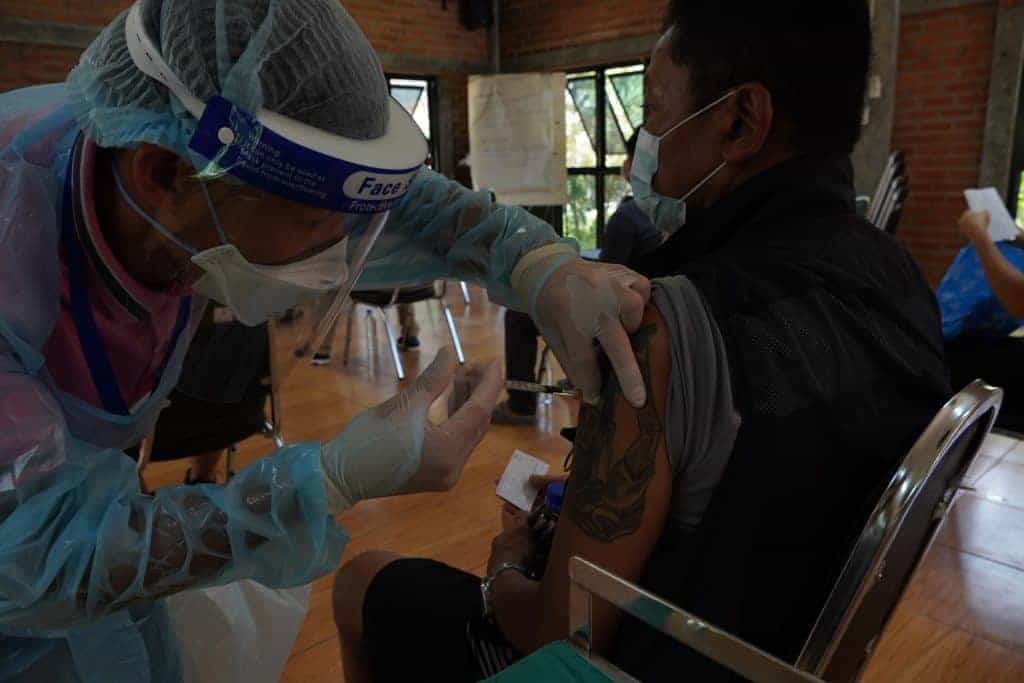 Located on the Thai side of the Thai-Myanmar border, the Mae Tao Clinic provides critical healthcare services for thousands of refugees and migrant workers. It was etablished in 1989 by Dr Cynthia Maung to provide health care for the large numbers of people seeking refuge from conflict and poverty in Myanmar.
Located on the Thai side of the Thai-Myanmar border, the Mae Tao Clinic provides critical healthcare services for thousands of refugees and migrant workers. It was etablished in 1989 by Dr Cynthia Maung to provide health care for the large numbers of people seeking refuge from conflict and poverty in Myanmar.
As conflict in Myanmar has escalated over the past year, large numbers of people have been displaced in their search for safety and any prospect of safe return for refugees has been dashed. In this context, the clinic remains a lifeline for the mostly Karen refugees seeking safety in Thailand along the border today.
COVID-19 Crisis
In the context of COVID-19 and increasing pressure on resources along the border, Mae Tao Clinic’s role in providing quality care has been critical. During the wave of Delta cases in the second half of 2021, the clinic became an authorised COVID-19 isolation centre under the supervision of the District General Hospital. At its peak, the clinic was isolating and providing care for over 390 COVID-19 positive patients, with other regular services being compromised due to the burden of cases and the impact on many staff who were exposed.
Ensuring quality care and staff safety
Union Aid Abroad – APHEDA is working with Mae Tao Clinic in support of their Occupational Health and Safety Committee and processes. Our project supports Mae Tao Clinic to deliver affordable and safe care by reinforcing its capacity to develop and maintain quality standards for staff and facilities.
 During the COVID outbreak, the OHS committee played a leading role in assessing patient flows and planning to resume other clinical services, ensuring patients could adequately maintain distance, providing essential information on prevention and control of COVID-19, assessing the facilities, and arranging suitable isolation areas for infected persons. Outcomes of the OHS committee’s work include: revised OHS Policy to include COVID risks, regular COVID testing regime for staff, development and implementation of COVID prevention checklists and cleaning schedules, additional hand-washing facilities, social distancing partitions and separated waiting areas. They also managed the logistics and safety protocols for the COVID-19 vaccination clinic.
During the COVID outbreak, the OHS committee played a leading role in assessing patient flows and planning to resume other clinical services, ensuring patients could adequately maintain distance, providing essential information on prevention and control of COVID-19, assessing the facilities, and arranging suitable isolation areas for infected persons. Outcomes of the OHS committee’s work include: revised OHS Policy to include COVID risks, regular COVID testing regime for staff, development and implementation of COVID prevention checklists and cleaning schedules, additional hand-washing facilities, social distancing partitions and separated waiting areas. They also managed the logistics and safety protocols for the COVID-19 vaccination clinic.
In addition to responding to the critical risks posed by the pandemic, the project has also continued to address ongoing OHS risks, including through holding regular OHS Committee meetings to discuss and respond to issues, implementing weekly OHS audits and addressing fire-safety at the clinic.
